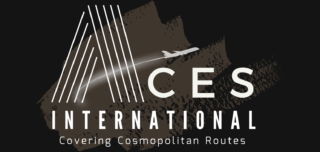As the business landscape continues to evolve, 2025 presents a wealth of opportunities for aspiring entrepreneurs. Identifying profitable small business ideas now can set the foundation for innovation and financial independence. From tech-driven solutions to eco-friendly products, the options are not only diverse but also aligned with current market demands.
Entrepreneurs are increasingly seeking ways to carve out their niche in a competitive environment. They can leverage emerging trends and consumer preferences to launch businesses that not only fulfill needs but also contribute to a sustainable future. The entrepreneurial journey in 2025 can be both rewarding and impactful for those willing to embrace change.
With the right strategy, individuals can explore various sectors such as health and wellness, remote services, and bespoke e-commerce solutions. Emphasizing practical approaches and realistic aspirations will help turn these ideas into successful ventures that resonate with today’s consumers.
Evaluating Market Opportunities
In assessing market opportunities, entrepreneurs must focus on conducting thorough market research and identifying gaps that existing products or services do not address. Understanding the landscape is essential for making informed decisions that align with personal skills and market demands.
Conducting Market Research
Market research forms the foundation of any successful business strategy. It involves gathering data on customer interests, behaviors, and preferences. Surveys, interviews, and focus groups can provide valuable insights into target customers.
Key components to consider:
- Demographics: Age, gender, income, and education of potential customers.
- Competitors: Analyze what similar businesses offer and their strengths and weaknesses.
- Trends: Stay updated on industry changes and consumer behavior shifts.
Utilizing online tools and platforms for research can help entrepreneurs gather real-time data. This information is crucial for tailoring products and services to meet market demands effectively.
Identifying Gaps and Needs
Identifying market gaps requires keen observation of unmet customer needs. Entrepreneurs should examine competitors and seek opportunities to innovate or improve existing solutions.
Steps to identify gaps include:
- Customer Feedback: Actively seek insights from existing customers to understand pain points.
- Niche Markets: Focus on specific segments that may be overlooked by larger companies.
- Problem Solving: Develop products that address specific issues customers face.
By targeting these gaps, entrepreneurs can establish a competitive advantage. They can create solutions that resonate with customers and fill voids in the market. Identifying these opportunities is essential for successful customer acquisition and long-term growth.
Developing Your Business Model
Creating a robust business model is essential for the success of any small business. It involves deciding on the legal structure and planning how to achieve financial stability and growth. Key considerations include legal requirements, liability, and cost management.
Choosing Your Business Structure
Selecting the right business structure affects taxes, liability, and operations. Common options include:
- Sole Proprietorship: Simple to establish and manage. They enjoy full control but assume personal liability.
- Partnership: Ideal for networking and shared responsibilities. Offers more resources but shared liability.
- Corporation: Provides limited liability protection. It requires more paperwork and often involves higher costs, but is beneficial for long-term growth.
Factors like income expectations, liability protection, and operational complexity should drive this decision.
Planning for Profitability
Effective planning is key to ensuring financial independence and sustainability. First, conduct market research to identify viable business ideas and target audiences. Utilize budgeting tools to monitor expenses and revenue.
Strategies for profitability include:
- Streamlining the e-commerce checkout process to maximize conversions.
- Identifying ways to cut costs and reduce expenses without compromising quality.
- Exploring passive income opportunities, like affiliate marketing, to supplement revenue.
Establishing a clear financial plan with projected incomes and expenses enables better decision-making and increases chances for success.
Marketing and Expansion
Effective marketing and expansion strategies are essential for small businesses looking to grow in 2025. By focusing on building an online presence and leveraging current trends, businesses can enhance their brand visibility and connect with their target audience.
Building an Online Presence
Creating a strong online presence is vital. Businesses should focus on developing a user-friendly website that reflects their brand identity. This includes optimizing for mobile devices and ensuring fast load times.
Utilizing social media platforms is another key element. Consistent posting and engagement can build a community around the brand. Creating great content, such as blog posts and videos, can boost brand awareness and establish authority in the market.
Email marketing remains a powerful tool. Regular newsletters and promotional offers can keep customers engaged and drive sales. Additionally, establishing partnerships with affiliates can further expand reach and create new revenue streams.
Leveraging Trends and Innovation
Staying ahead of marketing trends is crucial for growth. Influencer marketing is increasingly effective; collaborating with influencers can enhance credibility and reach new audiences. Incorporating digital marketing strategies, such as pay-per-click advertising and search engine optimization (SEO), can improve visibility. Businesses can also explore crowdfunding as a way to generate funds while engaging potential customers.
Networking plays a significant role, as building relationships can lead to collaborations that benefit both parties. By actively participating in online communities, businesses can gain valuable insights and feedback while fostering loyalty among customers.
Small Business Ideas for 2025
The landscape for small businesses in 2025 emphasizes adaptability and innovation. Entrepreneurs can leverage technology, pursue service-based enterprises, and turn passions into profit while creating flexibility in their work schedule.
Leveraging Technology and Platforms
In an increasingly digital world, small businesses can thrive by utilizing technology and online platforms. Entrepreneurs can explore affiliate marketing to generate passive income through products or services they endorse.
Popular Platforms:
- TikTok for marketing and reaching new audiences.
- Etsy for selling handmade goods.
- Fiverr for offering freelance services.
These platforms enable individuals to efficiently market their offerings, connect with customers, and gain visibility quickly. The entrepreneurial spirit can shine through in tech-driven ventures that reduce overhead costs.
Service-Based Enterprises
Service-based businesses remain in high demand as people seek convenience and expertise. This sector encompasses various niches where individuals can offer specialized services.
Examples include:
- Consulting in fields like marketing or finance.
- Translation services to assist businesses reaching global markets.
- Virtual assistants for administrative support.
Such ventures often require organizational skills and can be operated from home. They provide flexible options for entrepreneurs looking to balance personal and professional commitments, making them appealing side hustles.
Commercializing Personal Passions
Transforming personal interests into small business ventures is a viable strategy. This approach allows entrepreneurs to harness their skills while enjoying their work.
Potential business ideas:
- Photography for events or personal branding.
- Baking for custom cakes or health-conscious treats.
- Pet sitting or dog walking for pet owners needing reliable services.
By tapping into their passions, individuals can create businesses that not only generate income but also fulfill personal satisfaction.
Creating Flexibility and Freedom
Many aspiring entrepreneurs today prioritize work-life balance. Small business ideas that provide a flexible schedule are increasingly attractive.
Ideas that accommodate this desire include:
- Event planning with varied hours and client interactions.
- Personal shopping for busy individuals seeking convenience.
- Resume writing services for job seekers needing assistance.
These businesses allow for a creative blend of entrepreneurship and flexibility, appealing to those looking to maintain a comfortable lifestyle while pursuing their goals.

